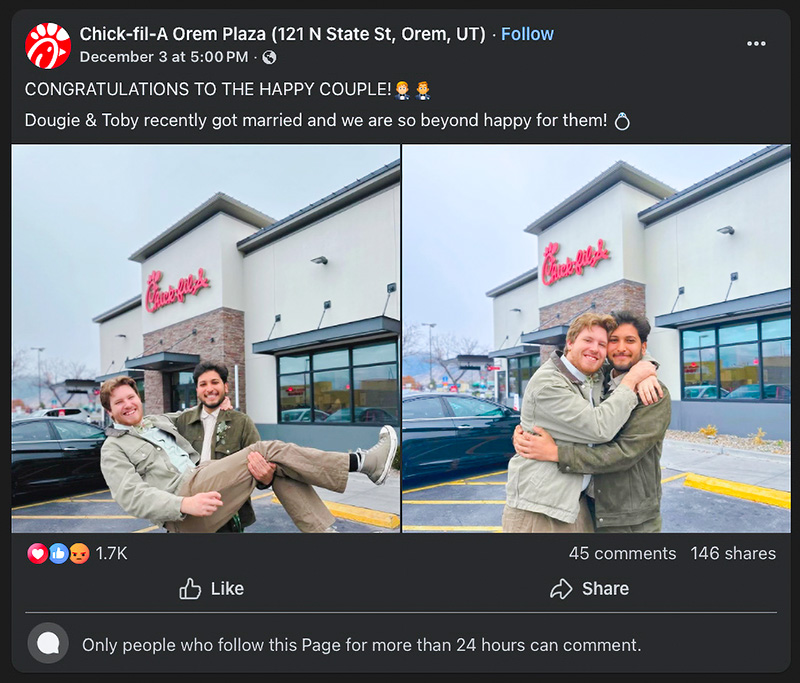Supreme Court Upholds Tennessee Ban on Trans Health Care
Ruling finds Tennessee’s ban on puberty blockers and hormones constitutional, clearing the way for similar bans in 24 other states.

The U.S. Supreme Court has upheld a Tennessee law banning doctors from prescribing gender-affirming puberty blockers and hormones to transgender youth with gender dysphoria.
A group of families of transgender youth and a doctor who treats them sued to overturn the law, arguing it was unconstitutional, infringed on parental rights, and violated nondiscrimination protections in the Affordable Care Act. Lower courts ultimately dismissed the parental rights and ACA-based claims.
A federal judge had initially blocked the law from taking effect, but Tennessee appealed. A federal appeals court then allowed the ban to be enforced while the case was decided on its merits.
On June 18, the high court ruled 6-3 along ideological lines, finding that Tennessee’s law does not violate the Constitution’s guarantee of equal protection. The court held that the ban on gender-affirming care is not subject to heightened judicial scrutiny and satisfies the most deferential standard, known as rational basis, reports CBS News.
“Our role is not ‘to judge the wisdom, fairness, or logic’ of the law before us, but only to ensure that it does not violate the equal protection guarantee of the Fourteenth Amendment,” Chief Justice John Roberts wrote for the court. “Having concluded it does not, we leave questions regarding its policy to the people, their elected representatives, and the democratic process.”
The court’s three liberal justices dissented, with Justice Sonia Sotomayor reading her dissent aloud from the bench.
“Tennessee’s law expressly classifies on the basis of sex and transgender status, so the Constitution and settled precedent require the Court to subject it to intermediate scrutiny,” Sotomayor wrote. “The majority contorts logic and precedent to say otherwise, inexplicably declaring it must uphold Tennessee’s categorical ban on lifesaving medical treatment so long as ‘any reasonably conceivable state of facts’ might justify it.
“Thus, the majority subjects a law that plainly discriminates on the basis of sex to mere rational-basis review. By retreating from meaningful judicial review exactly where it matters most, the Court abandons transgender children and their families to political whims,” she continued. “In sadness, I dissent.”
Because the high court determined that Tennessee’s ban does not unconstitutionally discriminate against transgender youth on the basis of sex, similar bans on hormonal and surgical treatments in 24 other states will also stand.
Two other states — New Hampshire and Arizona — do not ban puberty blockers or hormones, but do prohibit surgical interventions for youth.
Separately, 14 states and the District of Columbia have “shield laws” protecting access to gender-affirming care. New Jersey has an executive order — issued by a Democratic governor, but potentially reversible by a future conservative administration — protecting such access.
It remains to be seen whether the eight remaining states will pass bans similar to Tennessee’s. Beyond state bans, transgender youth also face additional hurdles to accessing care — from logistical barriers, such as insurance coverage and proximity to qualified providers, to legal obstacles.
President Trump recently issued two executive orders: one declaring that the federal government will only recognize two sexes, male and female; and another threatening to strip federal funding from medical institutions that provide gender-affirming care to anyone under 19 — despite 18 being the age of majority. Both orders are being challenged in federal court.
Tennessee Attorney General Jonathan Skrmetti, who defended the law, called Wednesday’s ruling an example of “common sense” prevailing over so-called “judicial activism” — a frequent right-wing buzzword used to disparage rulings conservatives oppose, such as the legalization of same-sex marriage or the upholding of the Affordable Care Act.
Skrmetti claimed that a rise in the number of children seeking gender-affirming care necessitated political action, accusing supporters of such interventions of basing their decisions on “ideology” rather than science.
LGBTQ advocacy groups and legal organizations representing the plaintiffs blasted the decision.
“Today’s ruling is a devastating loss for transgender people, our families, and everyone who cares about the Constitution,” Chase Strangio, the co-director of the ACLU’s LGBTQ & HIV Project, who argued the case before the Supreme Court, said in a statement. “Though this is a painful setback, it does not mean that transgender people and our allies are left with no options to defend our freedom, our health care, or our lives.”
Lucas Cameron-Vaughn, a senior staff attorney for the ACLU of Tennessee, said that the ruling “creates a class of people who politicians believe deserve health care, and a class of people who do not.”
“The [Supreme] Court today failed to do its job,” Jennifer Levi, senior director of transgender and queer rights for GLAD Law, added in a statement. “When the political system breaks down and legislatures bow to popular hostility, the judiciary must be the Constitution’s backbone. Instead, it chose to look away, abandoning both vulnerable children and the parents who love them. No parent should be forced to watch their child suffer while proven medical care sits beyond their reach because of politics.”
Rachel Laser, president and CEO of Americans United for Separation of Church and State, warned that the Court’s conservative majority has opened the door to future legal challenges unrelated to transgender rights — ones likely to be brought by Christian Nationalists seeking to impose a narrow, religiously based view of who is entitled to certain rights and freedoms.
“Not only has the court failed to protect America’s children, but this decision will encourage Christian Nationalists to further restrict any and all health care that doesn’t align with their narrow religious beliefs,” Laser noted. “LGBTQ+ people, women, religious minorities, the nonreligious and other traditionally marginalized communities are particularly at risk.”
Support Metro Weekly’s Journalism
These are challenging times for news organizations. And yet it’s crucial we stay active and provide vital resources and information to both our local readers and the world. So won’t you please take a moment and consider supporting Metro Weekly with a membership? For as little as $5 a month, you can help ensure Metro Weekly magazine and MetroWeekly.com remain free, viable resources as we provide the best, most diverse, culturally-resonant LGBTQ coverage in both the D.C. region and around the world. Memberships come with exclusive perks and discounts, your own personal digital delivery of each week’s magazine (and an archive), access to our Member's Lounge when it launches this fall, and exclusive members-only items like Metro Weekly Membership Mugs and Tote Bags! Check out all our membership levels here and please join us today!



























You must be logged in to post a comment.